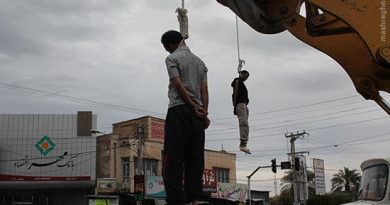Mandatory for Muslims to obey their Non-Muslim Governments: Late. Saudi Shaykh Al-Uthaymin
Shaykh Al-Uthaymin replied, “Yes, it is mandatory to obey the non-Muslim leaders in the rules which are made to organize law and order, because you are under their protection
The late. Saudi scholar Shaykh Mohammed Al-Uthaymin called it mandatory for Muslims to obey their non-Muslim governments, since the matter of obeying the non-Muslim leaders has always been a subject of speculation amongst some sections of Muslims, especially those living in the non-Muslim countries like India, United States, United Kingdom, etc.
Due to the lack of knowledge, the radical extremist and Islamist organizations like Muslim Brotherhood and its affiliates, call it “Haraam” or prohibited to obey the non-Muslim leader.
Shaykh Al-Uthaymin clarified this matter in the late 90s. However, the old video has resurfaced the internet lately, where a questioner asks the Shaykh about the permissibility of the matter, and Shaykh responds.
Saudi-based Indian Faris Al-Shareef translated the Shaykh’s response for the ease of understanding.
Question: “Is it mandatory to obey Non-Muslim leaders in the Non-Muslim Countries?”
Shaykh Al-Uthaymin replied, “Yes, it is mandatory to obey the non-Muslim leaders in the rules which are made to organize law and order, because you are under their protection and it’s obliged for us to obey them as long as it doesn’t oppose the Islamic values, for example, if they tell you to carry the cartons of Alcohol to so and so place then it cannot be followed”.
Who was Shaykh Al-Uthaymin?
The oldest scholar of Saudi Arabia, Shaykh al-Uthaymin, was born in 1929 in the Qaseem District of Saudi Arabia and died in Jeddah in 2001.
At an early age, he memorized the Quran. Later, he studied Hadith, Tafsir, theology, Arabic, and other Islamic subjects, eventually earning a degree from the College of Sharia in Riyadh.
He later attained positions as a professor at the College of Sharia at the Imam Mohammad bin Saud Islamic University in Qassim and a member of its Academic Council. He also wrote treatises on several facets of Islamic doctrine.
His 15-volume work on fiqh and 10-volume work on the interpretation of the Holy Qur’an are his two most significant works. Throughout Ramadan, he used to impart knowledge at Mecca’s Sacred Mosque.



